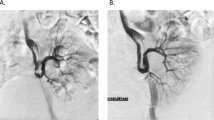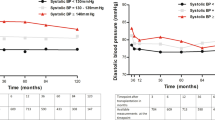Abstract
Hypertension is a very common condition among recipients of transplanted organs, and is often related to immunosuppressive therapy. In many transplant centres, calcium antagonists are often used as first-line antihypertensive drug therapy, not only because of efficacy in lowering blood pressure, but also because certain members of the class have a ‘beneficial’ drug–drug interaction with cyclosporin, which decreases the cost of administering this very expensive immunosuppressant. Diuretics are often used both for blood pressure and volume control, and some centres have used either alpha-beta-blockers, angiotensin-converting enzyme inhibitors, and even beta-blockers with success in certain patients. The high frequency of perceived adverse effects of antihypertensive drugs in transplant recipients and the diversity of training of the specialist physicians involved in their care makes choice of traditional antihypertensive drug therapy in these patients a major challenge.
This is a preview of subscription content, access via your institution
Access options
Subscribe to this journal
Receive 12 digital issues and online access to articles
$119.00 per year
only $9.92 per issue
Buy this article
- Purchase on Springer Link
- Instant access to full article PDF
Prices may be subject to local taxes which are calculated during checkout
Similar content being viewed by others
Author information
Authors and Affiliations
Rights and permissions
About this article
Cite this article
Elliott, W. Traditional drug therapy of hypertension in transplant recipients. J Hum Hypertens 12, 845–849 (1998). https://doi.org/10.1038/sj.jhh.1000713
Published:
Issue Date:
DOI: https://doi.org/10.1038/sj.jhh.1000713



